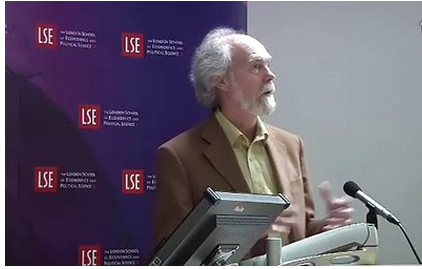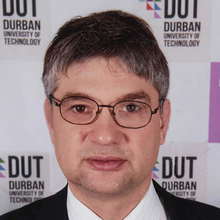Lecture 1: China’s Rise in English School Perspective
鑻卞浗瀛︽淳瑙嗚涓嬬殑涓浗宕涜捣
鏃�nbsp; 闂�/strong>锛�016骞�2鏈�鏃ワ紙鍛ㄥ洓锛�5: 30-17: 00
鍦�nbsp; 鐐�/strong>锛氳タ涓塀-212
涓昏浜�/strong>锛歅rofessor Barry Buzan
鎵�nbsp; 鍔�/strong>锛氭禉姹熷ぇ瀛﹀叕鍏辩鐞嗗闄㈡斂娌诲绯�strong>銆�/strong>娴欐睙澶у绀句細绉戝鐮旂┒闄�/span>
This lecture considers English School (ES) theory as a way of understanding China and its rise. It focuses both on where ES theory fits well enough with China to provide an interesting perspective, and on where ‘Chinese characteristics’ put China outside the standard ES framing and raise theoretical challenges to it. The first section briefly reviews the ES literature on China and how it sees China variously as a unique form of international society; as an object in the encounter with Western-colonial international society; and as an outlier in Western-global international society. The second section places China within the normative structure of contemporary decentred-global international society by looking at how China relates to the primary institutions that define that society. The third section explores two challenges that ‘Chinese characteristics’ pose for how the ES thinks about international society: hierarchy and ‘face’. The Conclusions assess the strengths and weaknesses of ES theory in relation to understanding the rise of China.
Lecture 2: Sketching the Future of Global International Society
鏈潵鍏ㄧ悆鍥介檯绀句細鐨勫浘鏅�/strong>
鏃�nbsp; 闂�/strong>锛�016骞�2鏈�鏃ワ紙鍛ㄤ簲锛�3: 30-15: 30
鍦�nbsp; 鐐�/strong>锛氳タ涓塀-112
涓昏浜�/strong>锛歅rofessor Barry Buzan
鎵�nbsp; 鍔�/strong>锛氭禉姹熷ぇ瀛﹀叕鍏辩鐞嗗闄㈡斂娌诲绯�strong>銆�/strong>娴欐睙澶у绀句細绉戝鐮旂┒闄�/span>
There is a widespread sense that the global international society (GIS) is in a significant period of transition. The longstanding Western order is under siege from several different directions including the diffusion of power, a mounting crisis within global capitalism, and a variety of shared threats from terrorism, through mass migration, to environmental change. This composite threat to the existing GIS is no small matter. Since the modern GIS first came into being during the 19th century, there have been many crises in it, including world wars, economic recessions and depressions, and decolonisation and the replacement of an imperial order by one of equality of both states and peoples. But so far there has not been a crisis of the GIS. Such a crisis would be big under any circumstances, but this one is particularly big because the existing GIS is the only one on a planetary scale that we have ever known, and it is not at all clear what kind of world order would or could follow on from its demise.

涓昏浜虹畝浠嬶細Barry Buzan is Professor Emeritus at the LSE, and a Senior Fellow at LSE IDEAS. Previously, he was Montague Burton Professor of International Relations at the LSE. In 1998 he was elected a fellow of the British Academy, and in the late 1990s he began a project to reconvene the English School. His books relevant to the English School include: International Systems in World History: Remaking the Study of International Relations (2000, with Richard Little);From International to World Society? English School Theory and the Social Structure of Globalisation (2004); The United States and the Great Powers: World Politics in the Twenty-First Century (2004); International Society and the Middle East: English School Theory at the Regional Level (2009, co-edited with Ana Gonzalez-Pelaez); International Society and the Contest Over ‘East Asia’ (2014, co-edited with Yongjin Zhang); An Introduction to the English School of International Relations: The Societal Approach (2014); and The Global Transformation: History, Modernity and the Making of International Relations (2015, with George Lawson); ‘Great Power Management in International Society’ The Chinese Journal of International Politics (2016, with Shunji Cui).
Lecture 3:The Emergence of a Multipolar International System
澶氭瀬鍖栧浗闄呬綋绯荤殑鍑虹幇
鏃�nbsp; 闂�/strong>锛�016骞�2鏈�鏃ワ紙鍛ㄤ簩锛夛細13:15-15:00
鍦�nbsp; 鐐�/strong>锛氫笢1A-130
涓昏浜�/strong>锛歅rofessor Alexander Lukin
鎵�nbsp; 鍔�/strong>锛氭禉姹熷ぇ瀛﹀叕鍏辩鐞嗗闄㈡斂娌诲绯�strong>銆�/strong>娴欐睙澶у绀句細绉戝鐮旂┒闄�/span>

涓昏浜虹畝浠�/strong>锛�strong>Alexander Lukin is the Head of Department of International Relations in National Research University Higher School of Economics, Russia, and also the Director of Centre for East Asianand Shanghai Cooperation Organization Studies in Moscow State Institute of International Relations(MGIMO-University).
娆㈣繋鍏虫敞娴欐睙澶у鍏叡绠$悊瀛﹂櫌瀹樻柟寰俊
鍏虫敞鏂瑰紡锛氭壂涓�壂涓嬫柟浜岀淮鐮佹垨鑰呰緭鍏ュ井淇″彿zjuspa鍗冲彲鎴愬姛娣诲姞


